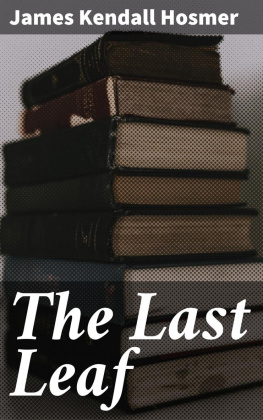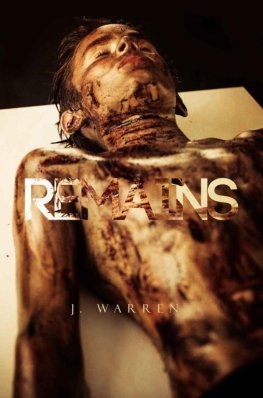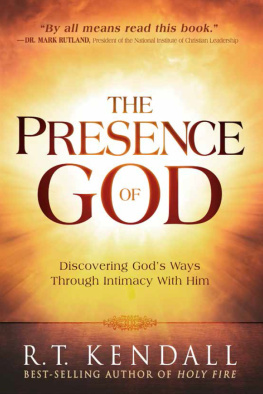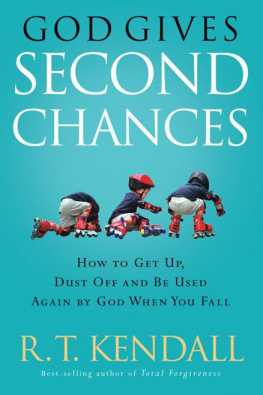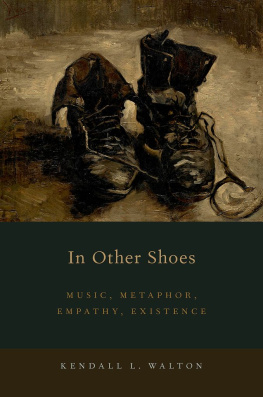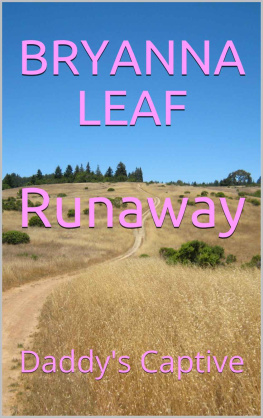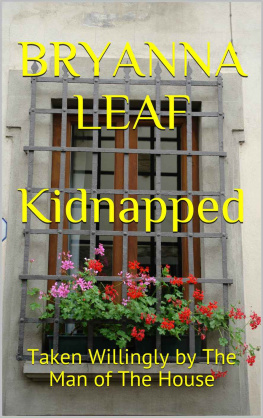FOREWORD
Table of Contents
Standing on the threshold of my eightieth year, stumbling badly,moreover, through the mutiny, well justified, of a pair of worn-outeyes, I, a veteran maker of books, must look forward to the closing ofan over-long series.
I retain in my memory certain films, which record impressions of longago. Can I not possibly develop and present these film records for amoving picture of the men and events of an eventful period?
We old story-tellers do our talking under a heavy handicap. Homer,long ago, found us garrulous, and compared us to cicadas chirpingunprofitably in the city-gate. In the modern time, too, Dr. Holmes,ensconced in smug youth, could "sit and grin" at one of our kind as he
"Totters o'er the ground
With his cane."
He thought
"His breeches and all that
Were so queer."
The "all that" is significant. To the callow young doctor, men of ourkind were throughout queered, and so, too, think the spruce and jauntycompany who are shouldering us so fast out of the front place. Intheir thought we are more than depositors of last leaves, in fact weare last leaves ourselves, capable in the green possibly of a pleasantmurmur, but in the dry with no voice but a rattle prophetic of winter.I hope Dr. Holmes lived to repent his grin. At any rate he lived torefute the notion that youthful fire and white hairs exclude eachother. If we must totter, what ground we have to totter over, withtwo generations and more behind us! The ground is ours. We only havelooked into the faces of the great actors, and have taken part in theepoch-making events. As I unroll my panorama I may totter, but I hopeI shall not dodder.
Retiring, as I must soon do from my somewhat Satanic activity, from"going to and fro in the earth and walking up and down in it," I canclaim, like my ill-reputed exemplar, to have encountered some patientJobs, servants of the Lord, but more who were impatient, yet not theless the Lord's servants, and the outward semblance of these I try topresent. My pictures have to some extent been exhibited before, inthe Atlantic Monthly, the New York Evening Post, andthe Boston Transcript, and I am indebted to the courtesy of thepublishers of these periodicals for permission to utilise them here.I am emboldened by the favour they met to present them again tothe public, retouched, and expanded. I attempt no elaboratecharacterisation of men, or history of events or exposition ofphilosophies. My films are snap-shots, caught from the curbstone, fromthe gallery of an assembly, in a scholar's study, or by the light ofa camp-fire. I have ventured to address my reader as friend might talkto a friend, with the freedom of familiar intercourse, and I hope thatthe reader may not be conscious of any undue intrusion of the showmanas the figures and scenes appear. Go, little book, with this settingforth of what you are and aim to do.
J.K.H.
MINNEAPOLIS, October, 4, 1912.
CHAPTER I
STATESMEN OF OUR CRITICAL PERIOD
"Tippecanoe and Tyler too." Millard Fillmore. Abraham Lincoln at
Church. Stephen A. Douglas. Daniel Webster. William H. Seward. Edward
Everett. Robert C. Winthrop. Charles Sumner. John A. Andrew.
CHAPTER II
SOLDIERS I HAVE MET
U.S. Grant. Philip H. Sheridan. George G. Meade. W.T. Sherman. Jacob
D. Cox. N.P. Banks. B.F. Butler. John Pope. Henry W. Slocum. O.O.
Howard. Rufus Saxton. James H. Wilson. T.W. Sherman. Horatio G.
Wright. Isaac I. Stevens. Harvard Soldiers. W.F. Bartlett. Charles R.
Lowell. Francis C. Barlow.
CHAPTER III
HORACE MANN AND ANTIOCH COLLEGE
Horace Mann. "The New Wrinkle at Sweetbrier." Dramatics in the Schoolsof Germany, of France, of England, at Antioch College.
CHAPTER IV
THE GIANT IN THE SPIKED HELMET
Prussia in 1870. Militarism in the Schools, in the Universities, inthe Home, in the Sepulchre. The Hohenzollern Lineage.
CHAPTER V
A STUDENT'S EXPERIENCE IN THE FRANCO-PRUSSIAN WAR
Kaiser Wilhelm der Grosse. The Emperor Frederick. Wilhelm II. Francis
Joseph of Austria. King Ludwig of Bavaria. Munich in War-time. A
Deserted Switzerland. France in Arms. Paris on the Verge of the Siege.
CHAPTER VI
AMERICAN HISTORIANS
George Bancroft. Justin Winsor. John Fiske.
CHAPTER VII
ENGLISH AND GERMAN HISTORIANS
Sir Richard Garnett. S.R. Gardiner. E.A. Freeman. Goldwin Smith.
James Bryce. The House of Commons. Lord Randolph Churchill and W.E.
Gladstone as Makers of History. Von Treitschke. Ernst Curtius. Leopold
von Ranke. Theodor Mommsen. Lepsius. Hermann Grimm.
CHAPTER VIII
POETS AND PROPHETS
Henry W. Longfellow. Oliver Wendell Holmes. James Russell Lowell.
The Town of Concord. Henry D. Thoreau. Louisa M. Alcott. Nathaniel
Hawthorne. Ralph Waldo Emerson. Phillips Brooks.
CHAPTER IX
MEN OF SCIENCE
German Scientists: Kirchoff, the Physicist. Bunsen, the Chemist.
Helmholtz. American Scientists: Simon Newcomb, Asa Gray, Louis
Agassiz, Alexander Agassiz.
CHAPTER X
AT HAPHAZARD
William Grey, Ninth Earl of Stamford. The Franciscan of Salzburg. The
Berlin Dancer. Visits to Old Battle-fields. Eupeptic Musings.
INDEX
The Last Leaf
CHAPTER I
Table of Contents
STATESMEN OF OUR CRITICAL PERIOD
I came to consciousness in the then small town of Buffalo in westernNew York, whither, in Andrew Jackson's day, our household gods andgoods were conveyed from Massachusetts for the most part by the ErieCanal, the dizzy rate of four miles an hour not taking away my babybreath. Speaking of men and affairs of state, as I shall do in thisopening paper, I felt my earliest political thrill in 1840. I have adistinct vision, the small boy's point of view being not much abovethe sidewalk, of the striding legs in long processions, of wide-open,clamorous mouths above, and over all of the flutter of tassels andbanners. Then began my knowledge of log-cabins, coon-skins, and ofthe name hard cider, the thump of drums, the crash of brass-bands,cockades, and torch-lights. My powers as a singer, always modest,I first exercised on "For Tippecanoe and Tyler too," which stillobtrudes too obstinately upon my tympanum, though much fine harmonyheard since in cathedrals and the high shrines of music is quitepowerless now to make that organ vibrate. Four years later, myemerging voice did better justice to "Harry Clay of Old Kentucky," andmy early teens found me in an environment that quickened prematurelymy interest in public affairs. My father, the pioneer apostle of anunpopular faith, ministered in a small church of brick faced withstone to a congregation which, though few in numbers, contained someremarkable people. Millard Fillmore and his partner, Nathan K. Hall,soon to be Postmaster-General, were of his fold, together with HiramBarton, the city's mayor, and other figures locally noteworthy.Fillmore was only an accidental President, dominated, no doubt, anddwarfed in the perspective by greater men, while the part he playedin a great crisis brought upon him obloquy with many good people. "Saywhat you will about Fillmore," said a fellow-totterer to me the otherday, adjusting his "store" teeth for an emphatic declaration, "bysigning the Fugitive Slave Bill he saved the country. That actpostponed the Civil War ten years. Had it come in 1850, as itassuredly would but for that scratch of Fillmore's pen, the Unionwould have gone by the board. The decade that followed greatlyincreased the relative strength of the North. A vast immigrationpoured in which almost universally came to stand for the Union.Moreover the expanding West, whose natural outlet until then had beendown the Mississippi to the South, became now linked to the East bygreat lines of railroad, and West and East entered into such a newbond of sympathy that there was nothing for it, in a time of trial,but to stand together. As it was, it was only by the narrowest marginthat the Union weathered the storm. Had it come ten years earlier,wreck would have been inevitable, and it is to Fillmore's signaturethat we owe that blessed postponement." As the old man spoke, I had avision of the grave, troubled face of my father as he told us once ofa talk he had just had with Mr. Fillmore. The relations of thepastor and the parishioner, always cordial, had become more than everfriendly through an incident creditable to both. Mr. Fillmore hadgood-naturedly offered my father a chaplaincy in the Navy, a post witha comfortable salary, which he might easily hold, taking now and thena pleasant sea-cruise with light duties, or indeed not leaving homeat all, by occasional trips and visits to the one man-of-war which theGovernment maintained on the Great Lakes. To an impecunious minister,with a large family to educate, it was a tempting offer. But my fatherin those days was a peace-man, and he was also disinclined to nibbleat the public crib while rendering no adequate service. He declinedthe appointment, a course much censured. "The fool parson, to letsuch a chance go!" Mr. Fillmore admired it and their friendship becameheartier than ever. In the interview, my father had asked his friendto explain his course on the Fugitive Slave Law, an act involvingsuffering for so many, and no doubt took on a tone of remonstrance. Hetold us the President raised his hands in vehement appeal. He had onlya choice between terrible evilsto inflict suffering which he hopedmight be temporary, or to precipitate an era of bloodshed with thedestruction of the country as a probable result. He did not doevil that good might come, but of two imminent evils he had, as hebelieved, chosen the lesser.


